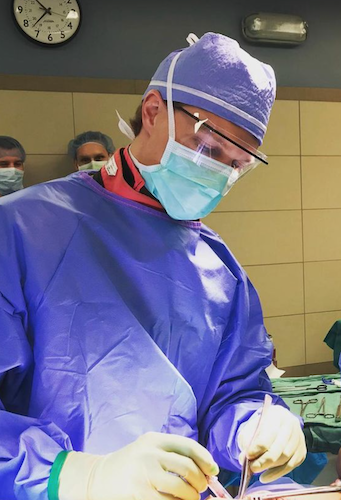.
.
Program Overview
.
![]()
The University of Wisconsin Orthopedic Surgery Residency Program is five years in length and we accept six new orthopedic residents each year. Our primary aim is to prepare residents to become future leaders in orthopedic surgery. Our goals are to:

-
Recruit the top medical students in the country
-
Train residents in the full breadth of general orthopedic conditions and treatments and provide significant exposure to complex orthopedic conditions and innovative treatment options
-
Prepare residents for future careers in academic or community practice, whether their path to practice is fellowship training in a specialty orthopedic field or general orthopedic practice immediately after residency
We provide residents a comprehensive education in a highly collegial environment that emphasizes learning and camaraderie. Each and every faculty member, by virtue of their ongoing commitment to practicing excellence in an academic environment, takes the privilege and responsibility of education seriously.
Our clinical curriculum is structured on the principle of graduated, progressive training, matching learner needs with duties that appropriately challenge them while providing a commensurate level of supervision.
We schedule a number of inpatient, outpatient, consultative, and elective experiences so our graduates will attain the professional, attitudinal, cognitive, and technical skills necessary to provide their patients with the kind and compassionate care they deserve. Residents have many opportunities to learn and practice patient communication and shared decision-making and to apply evidence-based knowledge to achieve the best likelihood of their patients’ desired outcome. Our residents learn how to problem solve and hone the process of self-directed lifelong learning. They are taught to assess patient outcomes in order to improve future decision-making and guide practice management.
.
.
![]()
Hear From Some of Our Residents
